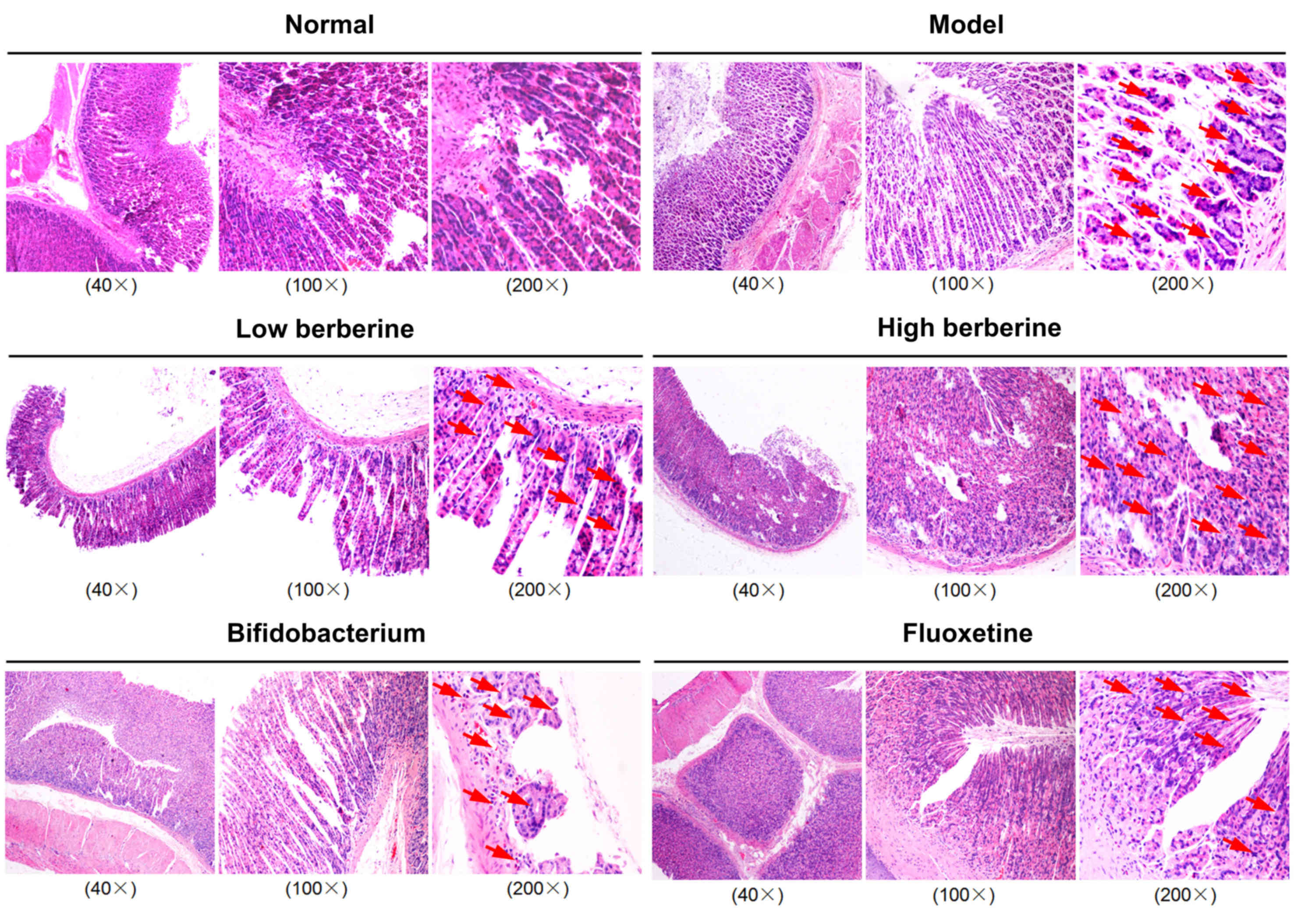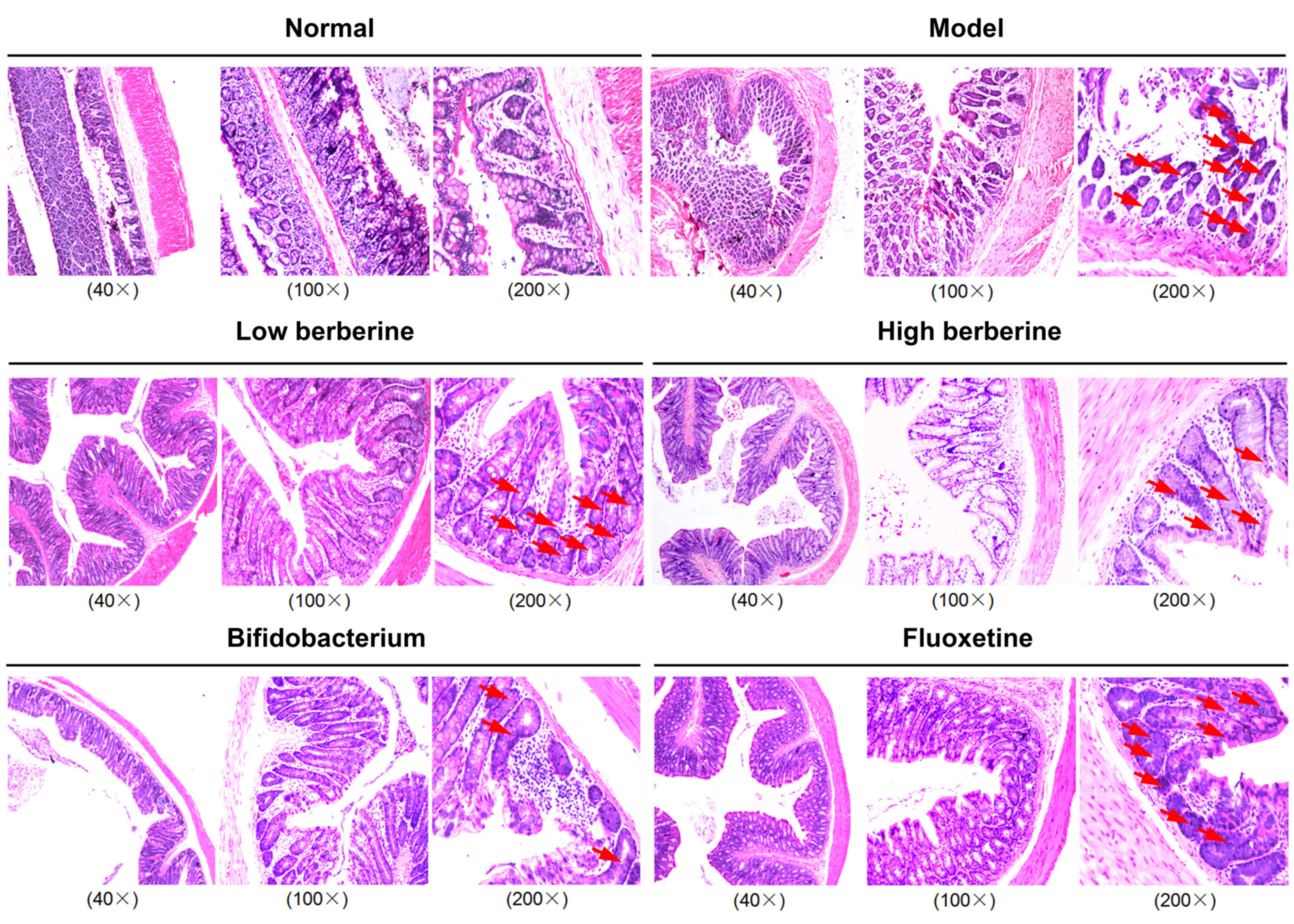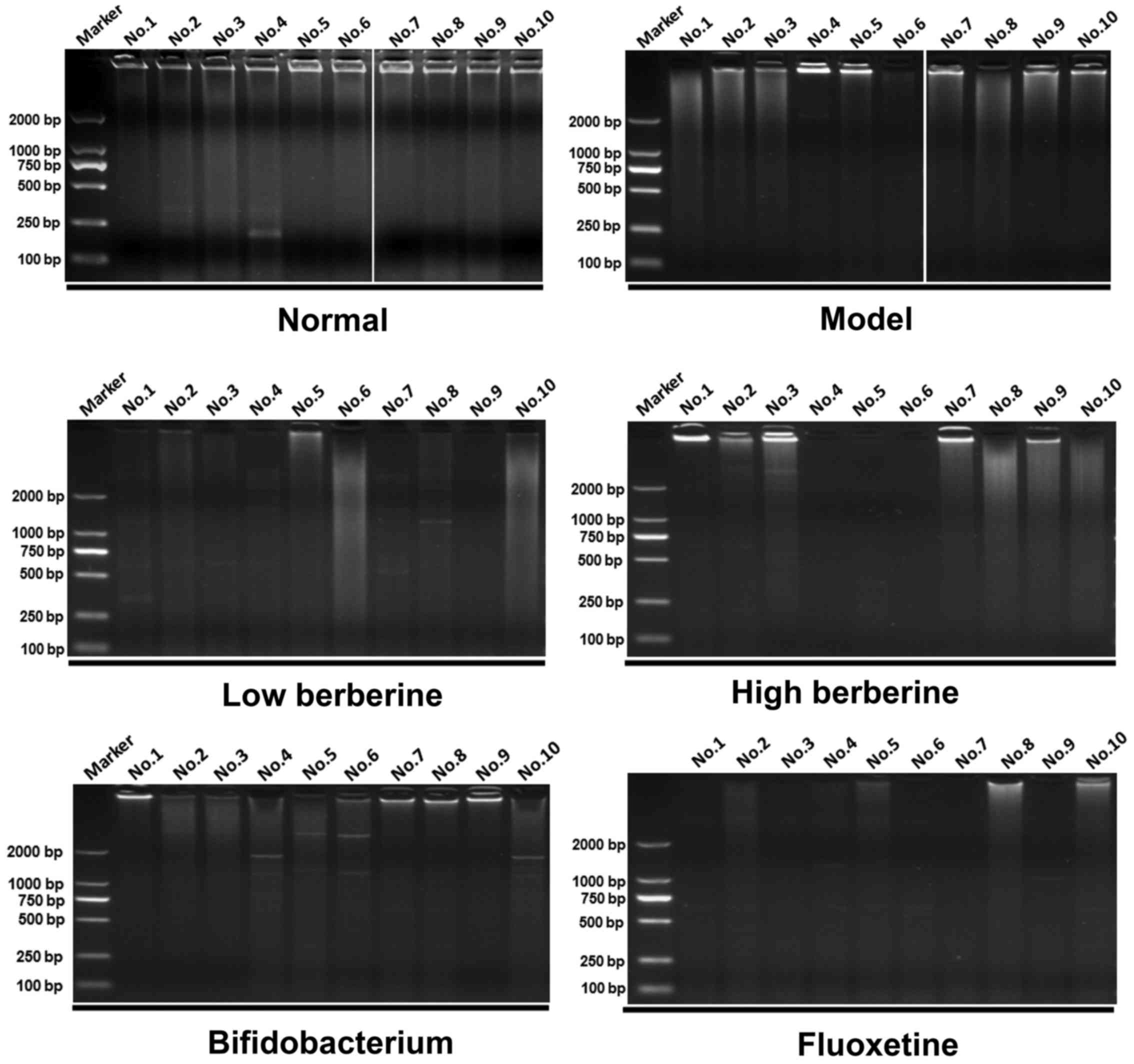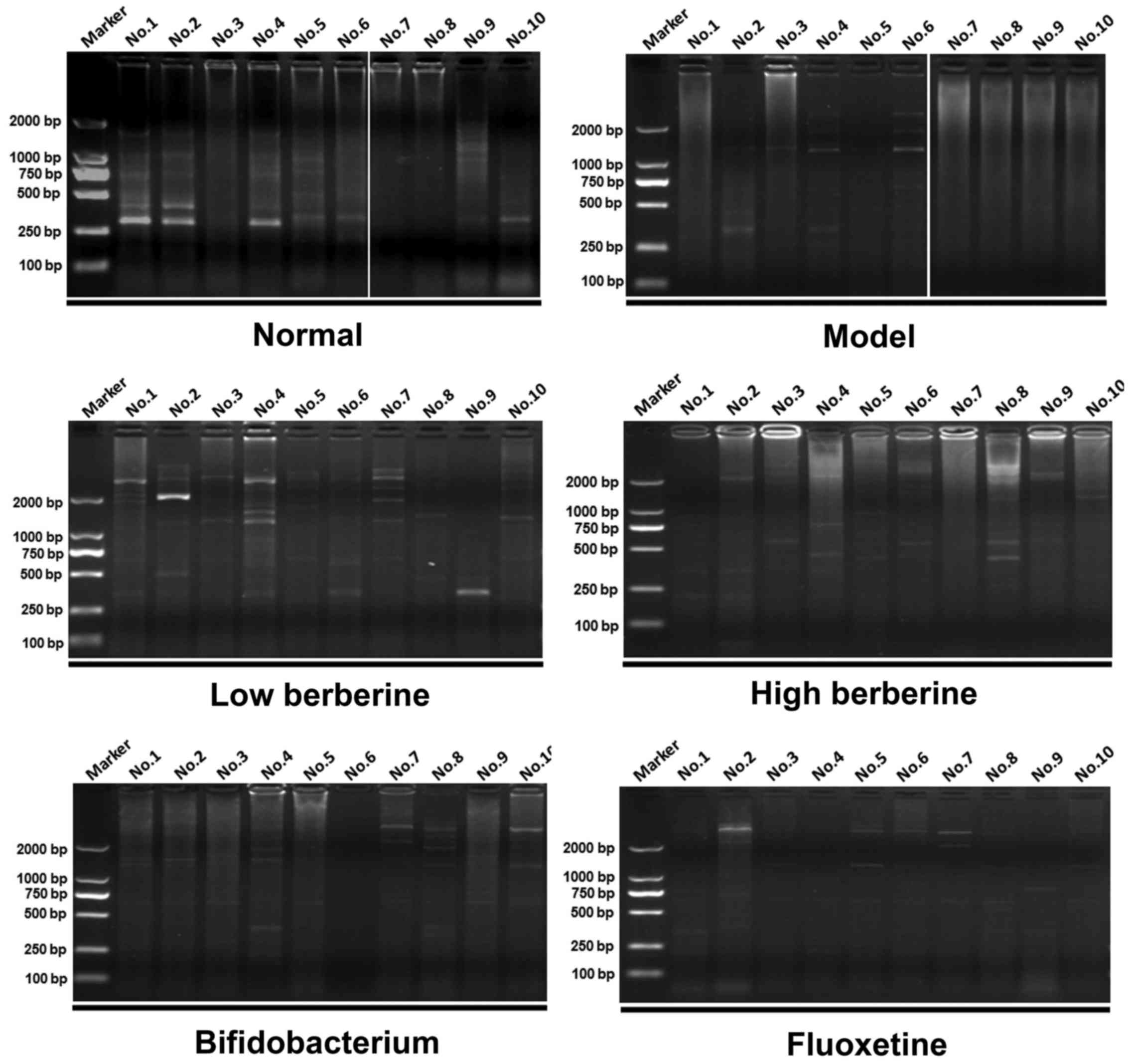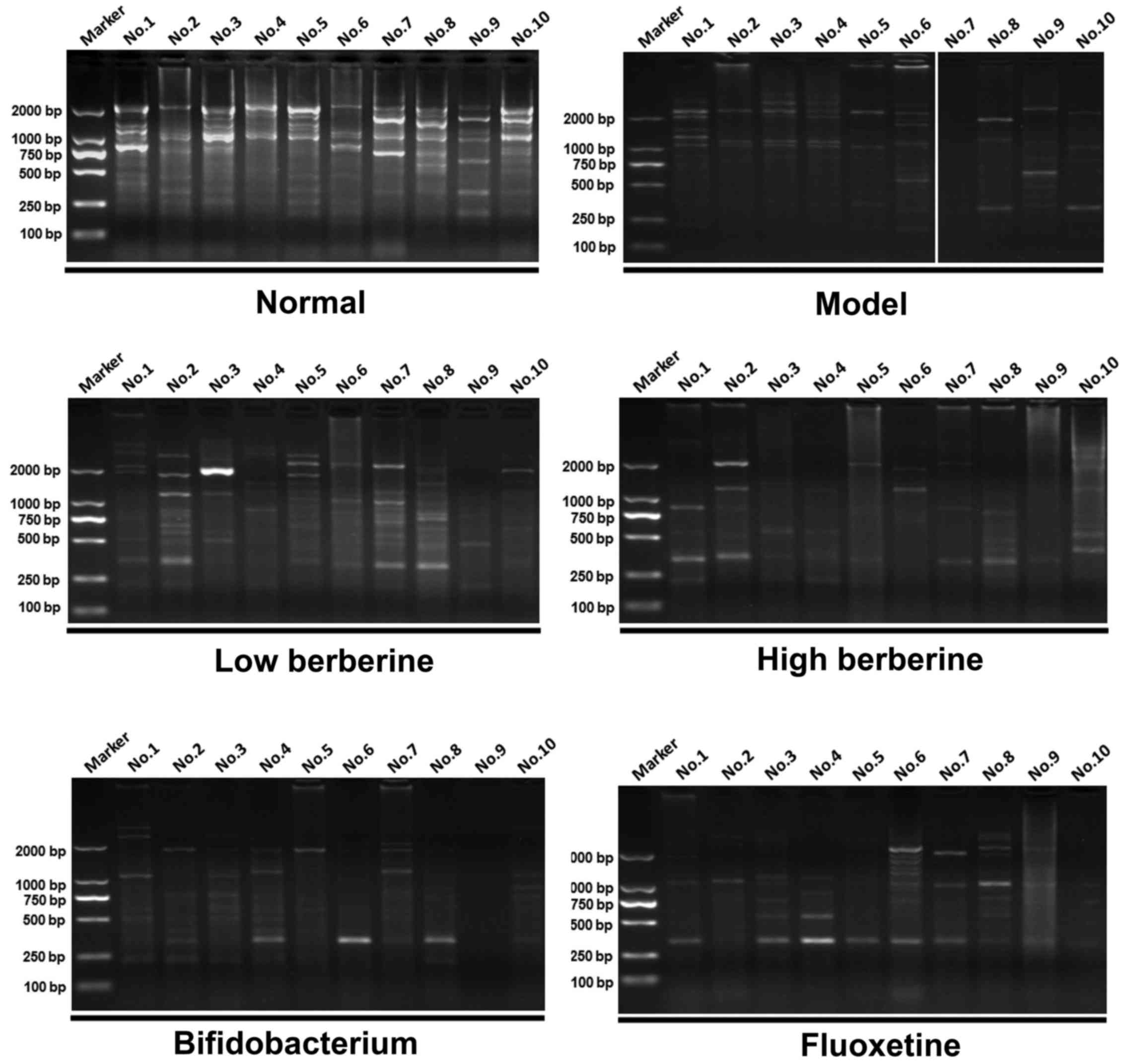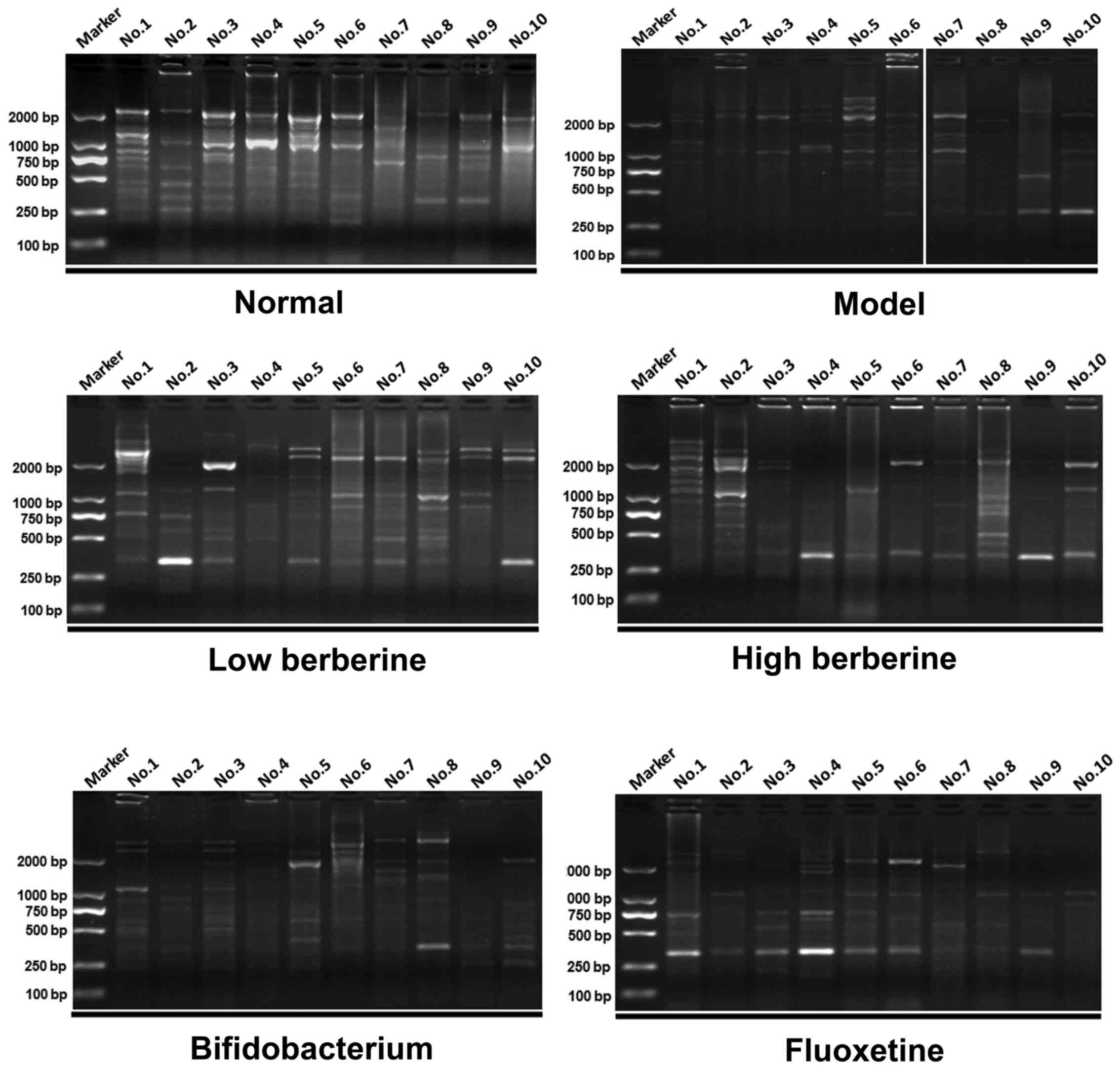|
1
|
Technow JR, Hazel NA, Abela JR and Hankin
BL: Stress sensitivity interacts with depression history to predict
depressive symptoms among youth: Prospective changes following
first depression onset. J Abnorm Child Psychol. 43:489–501. 2015.
View Article : Google Scholar : PubMed/NCBI
|
|
2
|
Mayberry LS, Egede LE, Wagner JA and
Osborn CY: Stress, depression and medication nonadherence in
diabetes: Test of the exacerbating and buffering effects of family
support. J Behav Med. 38:363–371. 2015. View Article : Google Scholar : PubMed/NCBI
|
|
3
|
Fan LB, Blumenthal JA, Watkins LL and
Sherwood A: Work and home stress: Associations with anxiety and
depression symptoms. Occup Med (Lond). 65:110–116. 2015. View Article : Google Scholar : PubMed/NCBI
|
|
4
|
Wang X, Cai L, Qian J and Peng J: Social
support moderates stress effects on depression. Int J Ment Health
Syst. 8:412014. View Article : Google Scholar : PubMed/NCBI
|
|
5
|
Reynaud E, Guedj E, Trousselard M, El
Khoury-Malhame M, Zendjidjian X, Fakra E, Souville M, Nazarian B,
Blin O, Canini F and Khalfa S: Acute stress disorder modifies
cerebral activity of amygdala and prefrontal cortex. Cogn Neurosci.
6:39–43. 2015. View Article : Google Scholar : PubMed/NCBI
|
|
6
|
Pulopulos MM, Hidalgo V, Almela M,
Puig-Perez S, Villada C and Salvador A: Acute stress and working
memory in older people. Stress. 18:178–187. 2015. View Article : Google Scholar : PubMed/NCBI
|
|
7
|
Nilsson D, Nordenstam C, Green S,
Wetterhall A, Lundin T and Svedin CG: Acute stress among
adolescents and female rape victims measured by ASC-Kids: A pilot
study. Nord J Psychiatry. 69:539–545. 2015. View Article : Google Scholar : PubMed/NCBI
|
|
8
|
Gonzalez M, Melamed G and Dillon C: Acute
stress disorder in the emergency, its relationship with trigger
factors from a gender perspective. Vertex. 25:172–178. 2014.(In
Spanish). PubMed/NCBI
|
|
9
|
Razzoli M, McCallum J, Gurney A, Engeland
WC and Bartolomucci A: Chronic stress aggravates glucose
intolerance in leptin receptor-deficient (db/db) mice. Genes Nutr.
10:4582015. View Article : Google Scholar : PubMed/NCBI
|
|
10
|
Radenbach C, Reiter AM, Engert V, Sjoerds
Z, Villringer A, Heinze HJ, Deserno L and Schlagenhauf F: The
interaction of acute and chronic stress impairs model-based
behavioral control. Psychoneuroendocrinology. 53:268–280. 2015.
View Article : Google Scholar : PubMed/NCBI
|
|
11
|
Hoffman AN, Parga A, Paode PR, Watterson
LR, Nikulina EM, Hammer RP Jr and Conrad CD: Chronic stress
enhanced fear memories are associated with increased amygdala
zif268 mRNA expression and are resistant to reconsolidation.
Neurobiol Learn Mem. 120:61–68. 2015. View Article : Google Scholar : PubMed/NCBI
|
|
12
|
Breuer K, Göldner FM, Jager B, Werfel T
and Schmid-Ott G: Chronic stress experience and burnout syndrome
have appreciable influence on health-related quality of life in
patients with psoriasis. J Eur Acad Dermatol Venereol.
29:1898–1904. 2015. View Article : Google Scholar : PubMed/NCBI
|
|
13
|
Gutknecht L, Popp S, Waider J, Sommerlandt
FM, Göppner C, Post A, Reif A, van den Hove D, Strekalova T,
Schmitt A, et al: Interaction of brain 5-HT synthesis deficiency,
chronic stress and sex differentially impact emotional behavior in
Tph2 knockout mice. Psychopharmacology (Berl). 232:2429–2441. 2015.
View Article : Google Scholar : PubMed/NCBI
|
|
14
|
Elfving B, Jakobsen JL, Madsen JC, Wegener
G and Muller HK: Chronic restraint stress increases the protein
expression of VEGF and its receptor VEGFR-2 in the prefrontal
cortex. Synapse. 190–194:692015.
|
|
15
|
Duncan J, Wang N, Zhang X, Johnson S,
Harris S, Zheng B, Zhang Q, Rajkowska G, Miguel-Hidalgo JJ, Sittman
D, et al: Chronic social stress and ethanol increase expression of
KLF11, a cell death mediator, in rat brain. Neurotox Res. 28:18–31.
2015. View Article : Google Scholar : PubMed/NCBI
|
|
16
|
Zhao J, Jung YH, Jang CG, Chun KH, Kwon SW
and Lee J: Metabolomic identification of biochemical changes
induced by fluoxetine and imipramine in a chronic mild stress mouse
model of depression. Sci Rep. 5:88902015. View Article : Google Scholar : PubMed/NCBI
|
|
17
|
Xing H, Zhang K, Zhang R, Zhang Y, Gu L,
Shi H, Bi K and Chen X: Determination of depression biomarkers in
rat plasma by liquid chromatography-mass spectrometry for the study
of the antidepressant effect of Zhi-Zi-Hou-Po decoction on rat
model of chronic unpredictable mild stress. J Chromatogr B Analyt
Technol Biomed Life Sci. 988:135–142. 2015. View Article : Google Scholar : PubMed/NCBI
|
|
18
|
Thompson AK, Fourman S, Packard AE, Egan
AE, Ryan KK and Ulrich-Lai YM: Metabolic consequences of chronic
intermittent mild stress exposure. Physiol Behav. 150:24–30. 2015.
View Article : Google Scholar : PubMed/NCBI
|
|
19
|
Yu M, Zhang X, Lu F and Fang L: Depression
and risk for diabetes: A meta-analysis. Can J Diabetes. 39:266–272.
2015. View Article : Google Scholar : PubMed/NCBI
|
|
20
|
Smith HR: Depression in cancer patients:
Pathogenesis, implications and treatment (Review). Oncol Lett.
9:1509–1514. 2015.PubMed/NCBI
|
|
21
|
Fagelman KM, Methratta S, Cilley RE,
Wilson MZ and Hollenbeak CS: The depression index: An objective
measure of the severity of pectus excavatum based on vertebral
diameter, a morphometric correlate to patient size. J Pediatr Surg.
50:1130–1133. 2015. View Article : Google Scholar : PubMed/NCBI
|
|
22
|
Tchuenbou J, Hamy A, Papapietro V, Sagan
C, Paineau J and Le Bodic L: Gastrointestinal mucormycosis: A rare
cause of digestive system hemorrhage. Gastroenterol Clin Biol.
23:794–795. 1999.(In French). PubMed/NCBI
|
|
23
|
Infant nutrition: Metabolism and the
digestive system. Proceedings, international symposium in infant
nutrition and the development of the gastrointestinal tract.
Niagara falls, Ontario, June 21–25, 1982. J Pediatr Gastroenterol
Nutr. 2:(Suppl 1). S1–S342. 1983.
|
|
24
|
Gastrointestinal hormones and pathology of
the digestive system. Adv Exp Med Biol. 106:1–326. 1978.
|
|
25
|
Results in gastroenterology 1978. Immune
system and the gastrointestinal tract; classification and therapy
of intestinal neoplasms. 33rd meeting of the German society for
digestive and metabolic diseases, Hamburg, 28–30 September 1978. Z
Gastroenterol Verh. 1–115. 1978.(In German).
|
|
26
|
Cossel L: Functional disorders of the
gastrointestinal system; a contribution to the chronic digestive
disorders of the duodenum and to the acute stomach dilatation.
Zentralbl Chir. 80:273–289. 1955.(In German). PubMed/NCBI
|
|
27
|
Ge L, Zhu MM, Yang JY, Wang F, Zhang R,
Zhang JH, Shen J, Tian HF and Wu CF: Differential proteomic
analysis of the anti-depressive effects of oleamide in a rat
chronic mild stress model of depression. Pharmacol Biochem Behav.
131:77–86. 2015. View Article : Google Scholar : PubMed/NCBI
|
|
28
|
Adak A, Maity C, Ghosh K and Mondal KC:
Alteration of predominant gastrointestinal flora and oxidative
damage of large intestine under simulated hypobaric hypoxia. Z
Gastroenterol. 52:180–186. 2014. View Article : Google Scholar : PubMed/NCBI
|
|
29
|
Wiwanitkit V: Antibiotic and
gastrointestinal tract flora. Vet Microbiol. 148:4522011.
View Article : Google Scholar : PubMed/NCBI
|
|
30
|
Shimizu K, Ogura H, Asahara T, Nomoto K,
Morotomi M, Nakahori Y, Osuka A, Yamano S, Goto M, Matsushima A, et
al: Gastrointestinal dysmotility is associated with altered gut
flora and septic mortality in patients with severe systemic
inflammatory response syndrome: A preliminary study.
Neurogastroenterol Motil. 23:330–335, e157. 2011. View Article : Google Scholar : PubMed/NCBI
|
|
31
|
Björkstén B: Impact of gastrointestinal
flora on systemic diseases. J Pediatr Gastroenterol Nutr. 46:(Suppl
1). E12–E13. 2008. View Article : Google Scholar
|
|
32
|
Shanahan F: Gut flora in gastrointestinal
disease. Eur J Surg Suppl. 47–52. 2002.PubMed/NCBI
|
|
33
|
Marteau P: Role of the intestinal flora in
gastrointestinal diseases. Lancet. 356:(Suppl). s282000. View Article : Google Scholar : PubMed/NCBI
|
|
34
|
Adams JB, Johansen LJ, Powell LD, Quig D
and Rubin RA: Gastrointestinal flora and gastrointestinal status in
children with autism-comparisons to typical children and
correlation with autism severity. BMC Gastroenterol. 11:222011.
View Article : Google Scholar : PubMed/NCBI
|
|
35
|
in't Huis Veld JH: Gastrointestinal flora
and health in man and animal. Tijdschr Diergeneeskd. 116:232–239.
1991.(In Dutch). PubMed/NCBI
|
|
36
|
Sharples GJ and Lloyd RG: A novel repeated
DNA sequence located in the intergenic regions of bacterial
chromosomes. Nucleic Acids Res. 18:6503–6508. 1990. View Article : Google Scholar : PubMed/NCBI
|
|
37
|
Ture M, Altinok I and Capkin E: Comparison
of pulsed-field gel electrophoresis and enterobacterial repetitive
intergenic consensus PCR and biochemical tests to characterize
Lactococcus garvieae. J Fish Dis. 38:37–47. 2015. View Article : Google Scholar : PubMed/NCBI
|
|
38
|
Fendri I, Ben Hassena A, Grosset N,
Barkallah M, Khannous L, Chuat V, Gautier M and Gdoura R: Genetic
diversity of food-isolated Salmonella strains through Pulsed
Field Gel Electrophoresis (PFGE) and Enterobacterial Repetitive
Intergenic Consensus (ERIC-PCR). PLoS One. 8:e813152013. View Article : Google Scholar : PubMed/NCBI
|
|
39
|
Adzitey F: Genetic diversity of
Escherichia coli isolated from ducks and the environment
using enterobacterial repetitive intergenic consensus. Pak J Biol
Sci. 16:1173–1178. 2013. View Article : Google Scholar : PubMed/NCBI
|
|
40
|
Hulton CS, Higgins CF and Sharp PM: ERIC
sequences: A novel family of repetitive elements in the genomes of
Escherichia coli, Salmonella typhimurium and other
enterobacteria. Mol Microbiol. 5:825–834. 1991. View Article : Google Scholar : PubMed/NCBI
|
|
41
|
Versalovic J, Koeuth T and Lupski JR:
Distribution of repetitive DNA sequences in eubacteria and
application to fingerprinting of bacterial genomes. Nucleic Acids
Res. 19:6823–6831. 1991. View Article : Google Scholar : PubMed/NCBI
|
|
42
|
Zhang Q, Cai L, Zhong G and Luo W:
Simultaneous determination of jatrorrhizine, palmatine, berberine,
and obacunone in Phellodendri Amurensis Cortex by RP-HPLC. Zhongguo
Zhong Yao Za Zhi. 35:2061–2064. 2010.(In Chinese). PubMed/NCBI
|
|
43
|
Berberine. Altern Med Rev. 5:175–177.
2000.PubMed/NCBI
|
|
44
|
Yu HH, Kim KJ, Cha JD, Kim HK, Lee YE,
Choi NY and You YO: Antimicrobial activity of berberine alone and
in combination with ampicillin or oxacillin against
methicillin-resistant Staphylococcus aureus. J Med Food. 8:454–461.
2005. View Article : Google Scholar : PubMed/NCBI
|
|
45
|
Kuo CL, Chi CW and Liu TY: The
anti-inflammatory potential of berberine in vitro and in vivo.
Cancer Lett. 203:127–137. 2004. View Article : Google Scholar : PubMed/NCBI
|
|
46
|
Gu Y, Zhang Y, Shi X, Li X, Hong J, Chen
J, Gu W, Lu X, Xu G and Ning G: Effect of traditional Chinese
medicine berberine on type 2 diabetes based on comprehensive
metabonomics. Talanta. 81:766–772. 2010. View Article : Google Scholar : PubMed/NCBI
|
|
47
|
Kulkarni SK and Dhir A: Sigma-1 receptors
in major depression and anxiety. Expert Rev Neurother. 9:1021–1034.
2009. View Article : Google Scholar : PubMed/NCBI
|
|
48
|
Kulkarni SK and Dhir A: Current
investigational drugs for major depression. Expert Opin Investig
Drugs. 18:767–788. 2009. View Article : Google Scholar : PubMed/NCBI
|
|
49
|
Kulkarni SK and Dhir A: On the mechanism
of antidepressant-like action of berberine chloride. Eur J
Pharmacol. 589:163–172. 2008. View Article : Google Scholar : PubMed/NCBI
|
|
50
|
Kulkarni SK and Dhir A: Berberine: A plant
alkaloid with therapeutic potential for central nervous system
disorders. Phytother Res. 24:317–324. 2010. View Article : Google Scholar : PubMed/NCBI
|















